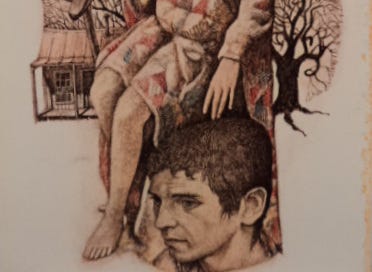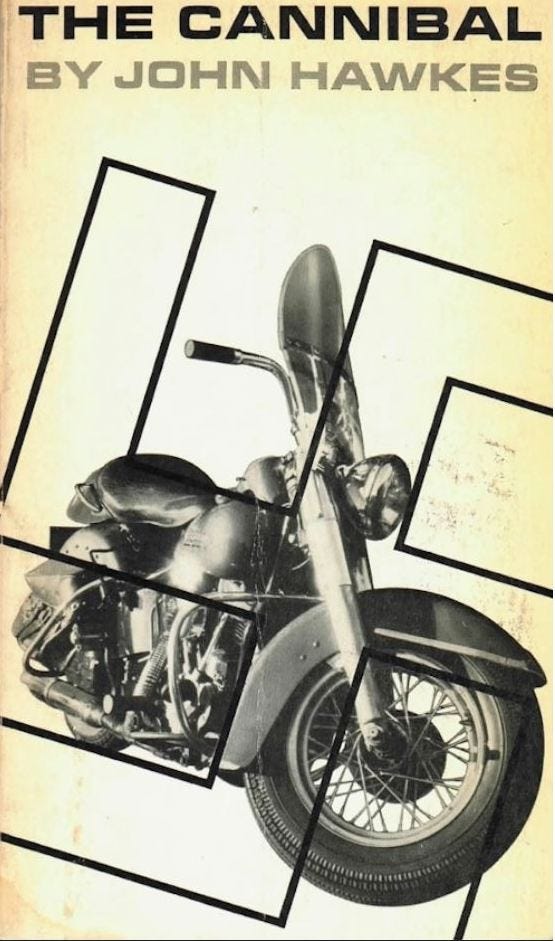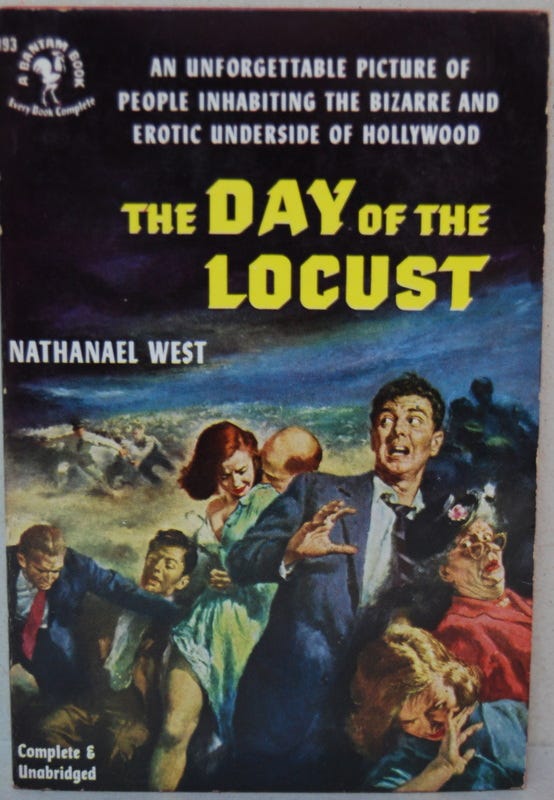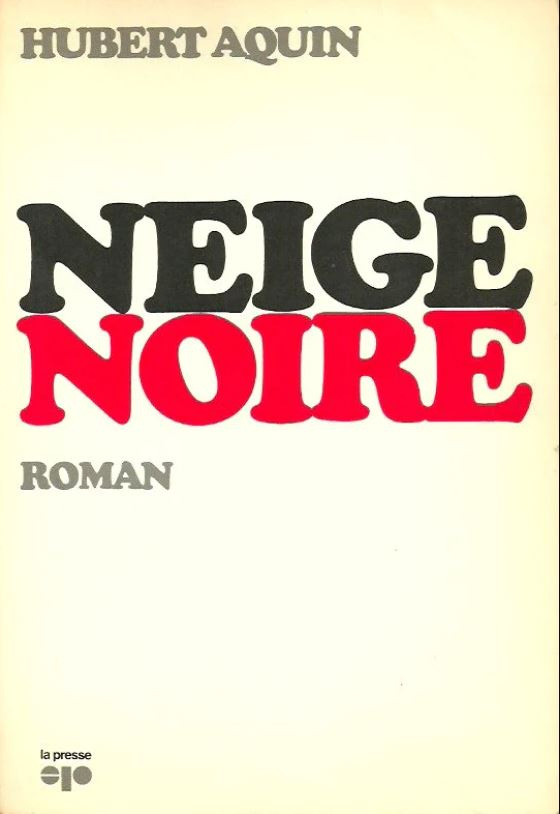My last post regaled you with the gruesome details of my family’s one and only mass murder. The timing was deliberate; I had just resigned from Vermont College of Fine Arts where one had to be careful in terms of what one read in public (there were guidelines) and what one advised students to read. Not just at VCFA, but across the land, great swaths of literature have become unreadable, mostly because they use words or describe acts that have become socially unacceptable. There are reasons why those words and acts are socially unacceptable; we are trying to make humans less sexist, less racist, less cruel. That’s a laudable goal, though the human race, on the whole, seems remarkably resistant to spiritual regeneration.
Parody and satire are the great weapons of the resistance against over-reaching authority, human greed, hypocrisy, and, well, stupidity. I adore the fact that Elon Musk now wants comedians who assume other peoples’ Twitter handles to label themselves. @parodyelonmusk. He can’t bear unlabeled, unlicensed mockery. Jokes without trigger warnings. On a deeper level, he can’t bear irony, the natural duplicity of language itself, sly, slippery, and subversive.
The techniques of parody and satire require the author to mime the thing he hates. That makes it an easy target for book-banning and trigger-warning diktats. Is Mark Twain’s use of the n-word an endorsement of racism and slavery, or is it a profound critique of racism and slavery?
Literal readings are death on literature.
Here’s a little essay on eating babies in fiction. I had once thought of it as a lecture for students at the college, but on second thought…
A few years back, a former student of mine, the author of an original and eccentric first novel, phoned me in despair. His agent had just turned down his latest effort with the comment, “No one will publish a novel in which characters eat a dead baby.” This delighted me no end as confirmatory evidence of how ill-read and endlessly ignorant agents can be. Time has passed, and that agent’s value set has spread like a virus over the land. We have all but forgotten how cruel, vicious, and funny literature can be.
In that moment, off the top of my head, I thought of two great dead baby-eating scenes in recent American fiction: one in Cormac McCarthy’s wonderful early novel Outer Dark and the other in John Hawkes’ The Cannibal.
Here’s McCarthy.
The mute one knelt forward. He was drooling and making little whimpering noises in his throat. He knelt with his hands outstretched and his nostrils rimpled delicately. The man handed him the child and he seized it up, looked once at Holme with witless eyes, and buried his moaning face in its throat.
The biblical cadences, the insistently active participles, the antiquated redundancy of “seized it up,” and that wondrously awful phrase “rimpled delicately” (from the middle English rimpil and the old English hrympel, meaning wrinkle) all signal an intentional literariness, an ironic (comic) tension between the scene and its presentation in words. I mean here to refer to Bakhtin’s theory of comedy, comedy meaning the juxtaposition of the sacred and profane, in this case, the high-blown intentional over-writing and the disgusting horror of the act.
Do I need to remind you that McCarthy went on to win the Pulitzer Prize for his novel The Road? (Baby-eating scene on page 167.)
Hawkes is lesser known, but he is the greatest of that amazing wave of post-50s American experimentalists. Here’s a parallel quotation from The Cannibal. A character known as the Duke has been hunting a little boy through the ruined streets of a post-war German city throughout the novel.
He should have preferred to have his glasses, but they were at home—another mistake. It was necessary to struggle, first holding the pieces on his lap, then crouching above the pile, he had to pull, to poke, and he resented the dullness of the blade. The very fact that it was not a deer or a possum made the thing hard to skin, the fact that it was not a rabbit made it hard to dissect; its infernal humanness carried over into death and made the carcass just as difficult as the human being had itself been.
John Hawkes is to American letters what Buster Keaton was to American movies, the master of deadpan delivery. Just as with the McCarthy text, the interest of these lines resides in the distance between the horror of the act and their presentation in words. The sentences are occluded, impeded, and elaborated (with but-constructions, parallel constructions, and inversions) as is the act of butchery itself. There is household comedy in the difficulty about the forgotten glasses and the dull knife (who’d have thought a heinous murder would be so mundanely difficult?). That last complex sentence, with its pressing anaphora and stunning moral inversion—“infernal humanity”—propels the text into an alternate upside-down universe of depravity.
But that phrase —“infernal humanity”—subtly reverberates outside the immediate text like sonar waves bouncing off hidden objects. Hawkes was friends with Flannery O’Connor, which seems an unlikely pairing unless you recall the rare humor of Tarwater drowning the “idiot” boy in The Violent Bear It Away.
"How come your pantslegs are wet?" the driver persisted.
"I drowned a boy," Tarwater said.
"Just one?" the driver asked.
"Yes."
Hawkes wrote an essay about O’Connor (and, obviously, without saying so, about himself) called “Flannery O’Connor’s Devil,”1 in which he compared her with that other great American writer of the demonic, Nathanael West. In Chapter 5 of West's savage Hollywood novel The Day of the Locust, celebrity party guests gather to view a blue movie that features child molesting. Here is a paragraph of the film scenario from the novel.
After some low comedy with father's beard and the soup, the actors settled down seriously to their theme. It was evident that while the whole family desired Marie, she only desired the young girl. Using his napkin to hide his activities, the old man pinched Marie, the son tried to look down the neck of her dress and the mother patted her knee. Marie, for her part, surreptitiously fondled the child.
West and O’Connor are very nearly alone, Hawkes writes, "in their employment of the devil’s voice as vehicle for their satire or for what we may call their true (or accurate) vision of our godless actuality."
He adds,
Both writers are demolishing “man’s image of himself as a rational creature” (Flannery O’Connor, for instance, in her wonderfully unsympathetic portrait of the ridiculous school teacher, Rayber, in The Violent Bear It Away, and West in his creation of total and hapless dementia in The Day of the Locust.) And both writers are reversing their artistic sympathies, West committing himself to the creative pleasures of a destructive sexuality, Flannery O’Connor committing herself creatively to the antics of soulless characters who leer, or bicker, or stare at obscenities on walls, or maim each other on a brilliant but barren earth.
Hawkes calls this comic treatment of extreme violence, the “syntax of the devil.” It will no doubt be off-putting for most readers, especially for those who, like my student’s agent, prefer their ethical universe packaged more conventionally. We tend to prefer our writers to be shocked, positively shocked, by the violence they portray. Everyone wants to feel self-righteously indignant and separate from those bad characters over there. Few writers or readers have the audacity to imagine their world view stood on its head. Few want to probe their own humanity at its darkest.
We have a tendency to describe the worst people as inhuman, which, after 300 years of the Atlantic slave trade, the Holocaust, the Killing Fields of Cambodia, and any number of other atrocities, seems like a weak argument. (At least, O’Connor’s Catholicism recognizes the ultimate depravity of human existence, Original Sin.) But there is no doubt that the savagery of the social critique inscribed in such works derives from a position of moral authority. A strange combination of ideas. Moral authority expressed in the Devil’s syntax. (Think of writers like Hawkes, O’Connor, and West as literary Taliban.)
What is most intriguing to Hawkes is how much fun these writers seem to have making jokes about awful things, that, in a sense, they are taking Satan’s side in the matter. In O’Connor’s case, he suggests that her stories represent “creative impulses of the writer which point toward the other side of her imagination—the demonic.” What results is fiction that is immoral and anti-realistic in the commonsense meaning of those terms. Hawkes concludes,
Flannery O’Connor’s writing stands out against all those immediate fictions which are precious or flatulent or tending to retreat into the security of a constraining realism. The voice of her devil speaks with a new and essential shrewdness about what Nathanael West called “the truly monstrous.”
Who writes like this? you might ask. It will be a short list; the world is awash in comforting and self-righteous fiction that supports our dominant Enlightenment ideals. My own reading is too narrow to supply a complete list. But at the top I put “Stavrogin’s Confession,” the infamous deleted chapter from Dostoevsky’s The Possessed (rescued and translated into English by Virginia Woolf). And the great indurated Austrians, Thomas Bernhard and, especially, Elfriede Jelinek (however did she manage to win over the Nobel Prize jurors, not otherwise known for adventurousness of spirit?).
In Canada, I can think only of Leonard Cohen’s Beautiful Losers (recall the Latin American waiter selling cakes of handsoap manufactured from human fat) and the mad inversions of Hubert Aquin’s novels—think of that cannibal honeymoon Neige Noir.
Linda
When he ate Sylvie she was still alive, is that right?
Eva
Yes. It’s natural that at her age certain parts of her body would be quite tasty.
Both Cohen and Aquin, it should be remembered, won the Governor-General’s Award (Aquin for fiction, Cohen for poetry). Both turned it down.
Other writers, other times.
The Sewanee Review, Vol. 70, No. 3 (Summer 1962).








And, of course, there's Jonathan Swift....
I was actually appalled by the first paragraph of this essay, the idea that there are such real restrictions on what one can read or write about publicly at serious educational institutions. I am privileged, I guess, to have done my degrees and written my theses in the late 70s and early 80s. There were lots of prudes and would-be censors about, but one could still win respect—and good scholarships—by reading and writing and speaking outrageously.
To be accurate, The Road doesn't feature actual baby eating, though those involved are in the "pre-dinner" stage: the baby is roasted, and spinning on a spit.
Lots of non-baby cannibalism in other literature. Shakespeare (who only wrote about half the play), in Titus Andronicus, certainly is among the most notorious in the scene where a murdered relative is baked into a pie and fed to an innocent array of others at a meal.